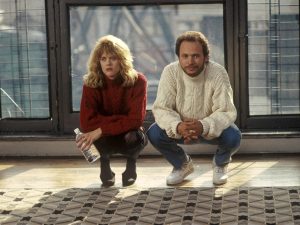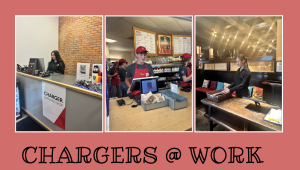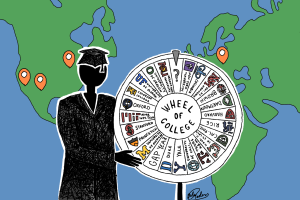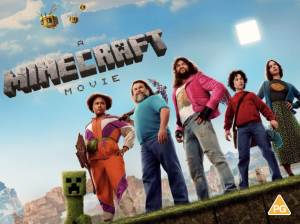School Should Stay In-Person
January 21, 2022
Students at the Academy should not pay 25,390 dollars a year for online lessons where teachers spend the first 15 minutes of class trying to help students to unmute, share their screen, and turn on their videos. Students at the Academy should not spend their education typing their responses to questions in the chat because their internet connection is too unstable to share with their classmates. Students at the Academy should not have their only interaction with friends and teachers be staring at a screen for two hours at a time. Online learning goes against everything that the Academy represents, everything that makes the Academy experience special and unique for both students and teachers. It eliminates the magical atmosphere of our school. Going remote didn’t work when we tried it last year, and one simply cannot expect it to work again. Staying in-person – while ensuring that proper precautions are taken – is the only reasonable option that shows bravery and determination.
Now, the school is obviously not COVID-free right now and the Omicron variant poses a threat to the safety of our community. Something certainly needs to be done about this surge in cases, but going online should be the last resort. The Academy, unlike most schools around the state, possesses the facilities to sustain safe in-person classes. One of the main ways that the Academy has attracted students – including me – is showcasing its numerous large classrooms and its sprawling, state-of-the-art facilities. But now, the school ought to utilize these new resources to address the challenge posed by Omicron. It’s tough, but we can do this. The school could take many novel, innovative precautions such as figuring out a way to reestablish distance between students in classes, limiting foot traffic in the buildings, ending the indoor lunch option in the dining hall, and requiring the wearing of masks outside (except during lunch). We could even consider the extreme measures of mandating vaccines or making unvaccinated students stay online, as they are more likely to contract the virus. Any steps that need to be taken should be taken, but, as Ms. Short, the 8 – 9 dean, and Mr. Kim, the 8 – 9 division head, have stated, going online is a desperate choice, a choice that should be avoided at all costs, a choice that essentially amounts to giving up.
If the Academy shuts its gates for the second time in the last two years, both students and teachers will be disappointed. This school is about interacting with your peers in between classes, fostering creativity through hands-on activities, and enhancing collaboration through group projects, all of which become impossible during remote learning.
Studies have found that going remote will also reduce both the productivity of students – an effect with long-term implications. As Hanushek and Woessman of the OECD assert, “learning is a dynamic process that builds on prior learning,” so “[c]losed schools … impart less new knowledge” to students. They “also mean loss of already acquired skills on which further learning could build.” In other words, going online results in students forgetting what they already learned in the previous school year while also not learning many new concepts. The authors go on to argue that this loss of learning is predicted to have catastrophic impacts on students’ lives: every third of a school year that we spend remotely “[reduces] the subsequent earned income of the pupils concerned by about 3%.” The income loss is predicted to result in “a less skilled workforce,” which, in turn, causes lower overall economic growth and a decline in GDP. If students would like to lead successful, productive careers, then in-person learning is the best route for them and the well-being of the entire country.
Furthermore, going online will also have an emotional toll. Students will no longer be able to communicate with their friends and many will struggle to focus during online classes, developing Zoom fatigue. Constant distractions in the house, isolation from peers, interruptions caused by internet problems, loneliness – all of these are consequences of the online learning environment that will simply put more pressure on students. However, scientists have conclusively proven that happier students will receive better grades and higher GPAs throughout their education; thus, when students are unhappy and constantly stressed due to online learning, their grades will inevitably decrease and they will only become more miserable as a result. Much of the happiness of students at the Academy will be eroded.
I’ll admit that online learning is certainly the easy option. All the school has to do is send students home and they can stop spending so much money and effort on cleaning systems, mask policies, distancing in classrooms, and more. Remaining in-person is certainly the tougher approach: it requires lots of thought, planning, money, and resources. But the Academy has always been a school that takes the tough, bumpy route – that is beneficial in the long-term – instead of the simple escape, which appears to bring short-term success. If the school makes its decision with “wisdom, conviction, and compassion,” as it always has, then there is no reason to take the easy way out and go online.







